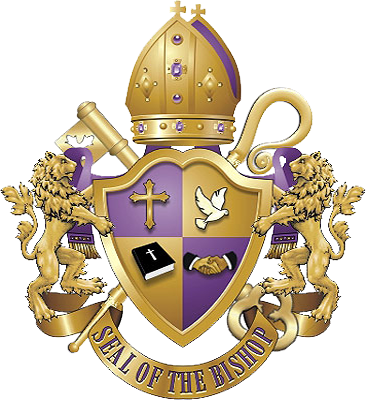The First Bishops of the New Testament
Church: Their Lives and Contributions
Lesson 5.2: Origen's Writings and Philosophy
Origen of Alexandria stands out as one of the most influential and complex figures in
early Christian history. In this lesson, we will explore his theological innovations, his
writings, and his contributions to interpreting Christian scripture. Origen’s work reflects
a unique blend of faith and intellectual rigor, laying a foundation for Christian theology
and biblical interpretation that would resonate for centuries.
Origen was born in Alexandria, Egypt, in the late second century. This vibrant
intellectual hub exposed him to a wide range of philosophical and religious ideas, which
deeply influenced his thinking. He was a devoted Christian from a young age, and his
commitment to the faith was evident even during the persecution of Christians. This
dedication shaped his approach to scripture, as he sought to understand and defend
Christian teachings within an intellectual framework.
One of Origen’s most significant contributions was his approach to interpreting
scripture. He believed that the Bible had multiple layers of meaning, which he
categorized as literal, moral, and spiritual or allegorical. In Origen’s view, the literal
meaning was important but often served as a surface layer, pointing to deeper truths
beneath. He emphasized the allegorical interpretation of scripture, arguing that many
biblical passages contained hidden spiritual meanings that could only be grasped
through deeper reflection. This method allowed Origen to address passages that
seemed contradictory or problematic when taken at face value. For example, he
interpreted parts of the Old Testament allegorically to reconcile them with the teachings
of Christ.
One of Origen’s most ambitious projects was the *Hexapla*, a massive work of biblical
scholarship. The *Hexapla* was a critical edition of the Hebrew Bible, presented in six
parallel columns. These columns included the original Hebrew text, a transliteration into
Greek, and four Greek translations. This monumental undertaking demonstrated
Origen’s commitment to understanding scripture in its original context and ensuring an
accurate transmission of the biblical text. While the complete *Hexapla* has not
survived, it had a profound impact on the development of biblical studies and translation.
In addition to his work on the Bible, Origen produced a vast body of theological writings,
many of which have been preserved. Among his most important works is *On First
Principles*, a systematic exploration of Christian theology. In this work, Origen tackled
complex questions about the nature of God, the creation of the world, and the role of
Christ in salvation. He introduced the concept of the eternal generation of the Son,
arguing that Christ, as the Logos, was eternally begotten by the Father. This idea would
later influence the development of the doctrine of the Trinity.
Origen’s philosophical background also shaped his theology. He was deeply influenced
by Platonism, particularly the works of the philosopher Plato and his followers. This
influence is evident in Origen’s views on the soul and the nature of reality. He believed
in the pre-existence of souls, suggesting that all souls were created by God and existed
before their embodiment in human form. He also taught that the material world was a
temporary state, with the ultimate goal of all creation being a return to unity with God.
While these ideas were controversial and later deemed heretical by some, they
illustrate Origen’s willingness to engage with philosophical ideas to deepen his
understanding of Christian faith.
Another key aspect of Origen’s theology was his emphasis on free will. He argued that
human beings have the capacity to choose between good and evil, and that this
freedom is essential for genuine spiritual growth. For Origen, the choices individuals
make in this life have eternal consequences, but God’s mercy and grace are always
available for those who seek to return to Him. His focus on free will highlighted the
dynamic relationship between human responsibility and divine love in the process of
salvation.
Origen also contributed to the defense of Christianity through his apologetic writings.
One of his most notable works in this regard is *Against Celsus*, a detailed response to
the criticisms of Christianity by the pagan philosopher Celsus. In this work, Origen
addressed accusations against Christianity, defended the truth of the faith, and
articulated a reasoned case for the superiority of Christian teachings over pagan
philosophies. This text remains an important resource for understanding early Christian
apologetics and the challenges faced by the church in its formative years.
Despite his intellectual achievements, Origen’s legacy is not without controversy. Some
of his teachings, particularly those on the pre-existence of souls and the eventual
restoration of all beings to God, were later condemned as heretical. This has led to
ongoing debates about his role in the history of Christian theology. However, it is
important to recognize that Origen lived in a period of theological development, long
before many doctrines were formalized. His speculative approach and willingness to
wrestle with difficult questions reflect the dynamic and exploratory nature of early
Christian theology.
Origen’s influence on the church has been profound. His allegorical method of
interpreting scripture shaped the way many early Christians approached the Bible, and
his theological ideas laid the groundwork for later debates and developments. Even
those who disagreed with him were forced to engage with his ideas, and his work
continued to be studied and debated for centuries.
In conclusion, Origen of Alexandria was a thinker who sought to bridge the gap
between faith and reason, scripture and philosophy. His writings and theological
explorations have left an enduring mark on Christian thought, even as some of his
ideas remain controversial. Through his work, Origen demonstrated that faith and
intellectual inquiry could coexist, offering a model of theological reflection that continues
to inspire and challenge us today. As we move forward in this module, we will explore
the broader legacy of Origen and the ways his contributions have been viewed
throughout Christian history

Comments are closed.